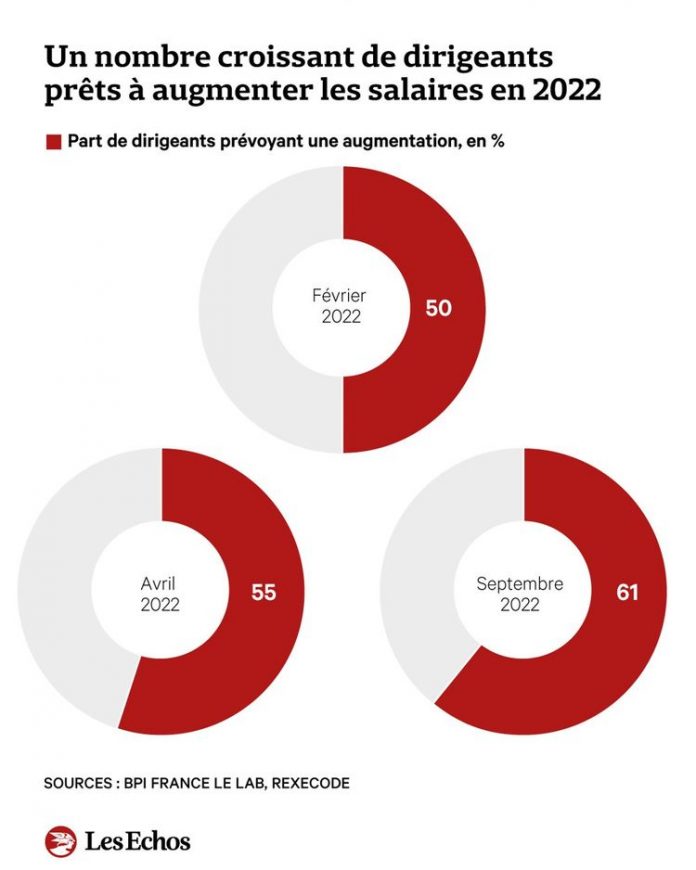Posted Sep 29, 2022, 6:40 AMUpdated on Sep 29, 2022 at 6:56 am
For SMEs and VSEs, the war in Ukraine has very concrete effects. Rise in the prices of energy, raw materials, wages. On all sides, costs are exploding with the consequence of a further “deterioration” of their cash flow over the last three months, according to the latest quarterly barometer Bpifrance, Le Lab and Rexecode carried out at the beginning of September. And “leaders expect further deterioration in the short term”.
While the economic outlook is darkening with even the specter of a recession next year in France, “the barometer records the cooling of the French economy”, according to Baptiste Thornary, head of economic and economic studies at Bpifrance. Faced with the clouds to come over their activity, French SMEs and VSEs are beginning to adjust their plans.
“Floating”
Only 53% of them – compared to 55% in April, and 59% in February – now plan to invest in 2022. The bosses are now more likely to foresee a reduction in their investment budget than an increase (29% against 26%). This, even if the conditions of access to credit remain favorable, despite the rise in interest rates. The share of SMEs and VSEs reporting financing difficulties remains very low (15%), down even in the barometer…
“It’s not panic, but the barometer illustrates the uncertainty that characterizes the period. SMEs and VSEs do not know how the situation will turn out,” summarizes Philippe Mutricy, director of studies at Bpifrance.
Recruitment difficulties
Revealing this state of mind, when these small businesses are asked to cite the main obstacle to their growth, their first response is neither inflation, nor soaring costs, nor even supply problems. – which are nonetheless intensifying – but recruitment difficulties.
Faced with the increased mobility of employees since the health crisis, more and more managers (61%, or +6 points compared to April) say they are ready to agree to salary increases this year. Considered by 70% of them as the best way to build loyalty, the planned increase is also increasing and stands at 3.1% on average, against 2.7% in April.
A majority of SMEs and VSEs protected
The barometer shows that 60% of SMEs and VSEs surveyed intend to raise their selling prices, less to absorb wage increases than to compensate for the increase in the cost of their supplies excluding energy. Ultimately, 44% of these companies nevertheless anticipate a drop in their net margin in 2022.
And the threat of an energy crisis portends a difficult winter. Four out of five SMEs and VSEs fear the negative consequences on their operating account of soaring energy prices on their business. Nearly a quarter of them even believe that the impact will be “strong”. However, most companies are protected from price volatility whether they are covered by a regulated tariff contract or a price indexed to regulated tariffs.
Worried about the hypothesis of gas rationing this winter, the bosses do not seem ready to change their habits. Less than a quarter of them plan to implement alternatives to fossil fuels or have already used them.















